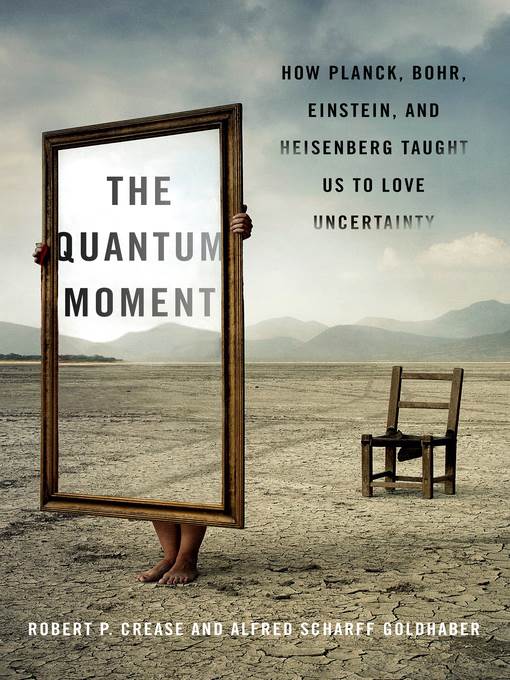
The Quantum Moment
How Planck, Bohr, Einstein, and Heisenberg Taught Us to Love Uncertainty
کتاب های مرتبط
- اطلاعات
- نقد و بررسی
- دیدگاه کاربران
نقد و بررسی

August 25, 2014
Histories of quantum theory are typically dense with complex, abstract ideas, but philosopher Crease and physicist Goldhaber, both of Stony Brook University, offer a new twist, adding a fascinating look at the ways the mainstream world has embraced (though not always accurately!) the concepts of quantum mechanics. Pop culture took up the quantum cause with far more gusto than most physicists. When first proposed, quantum theory was deemed “ugly, weird, unpredictable,” and “quite distasteful.” Experimentalist Robert Milliken tried to kill the idea, but his lab results kept confirming it. The authors cheerfully discuss how much Einstein, along with many of his peers, hated the way the theory allowed uncertainty to toy with reality. While physicists struggled to fill in the missing bits of their incomplete theories, quirky quantum ideas became parts of a “sphinxian riddle” that captured the mainstream imagination and inspired everyone from cartoonists and sculptors to such writers as Ian Fleming and John Updike. Crease and Goldhaber have written an accessible and entertaining history that embraces both the science and the silliness of quantum mechanics.

September 1, 2014
Crease (philosophy; Physics World columnist) and Goldhaber (physics, C.N. Yang Inst. for Theoretical Physics, both Stony Brook Univ.) explore the history of the quantum and the true meaning of metaphors such as Schrodinger's cat, quantum leaps, Hook's spring, and more. The authors begin by discussing Sir Isaac Newton and the Newtonian world, then cover quantum physics and study of the micro, a particle so small that scientists rely upon metaphor to discuss it. The authors make the connection to popular culture, where the ideas of quantum physics have sparked interest in a wider, nonphysicist audience. While the title is written with the general reader in mind, a basic knowledge of physics and quantum physics will aid in its understanding. VERDICT Readers who want to comprehend quantum physics, creativity, metaphor in physics, and the history of modern quantum physics will enjoy this work. A lighter read than a science text, this is more accessible to the average person and will be enjoyed by creative readers who have a scientific leaning.--Dawn Lowe-Wincentsen, Oregon Inst. of Technology, Portland
Copyright 2014 Library Journal, LLC Used with permission.

























دیدگاه کاربران